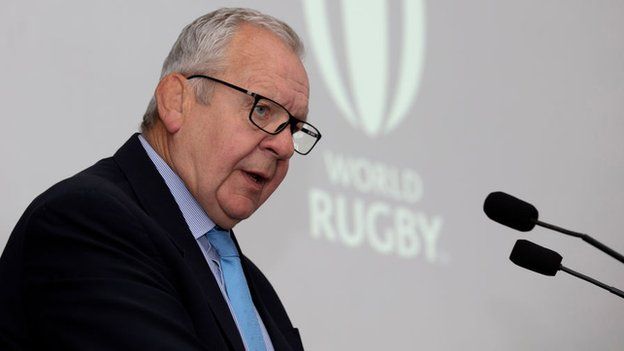Nations Championship: World Rugby abandons plans for new world league
- Published
- comments

Former England captain Sir Bill Beaumont is the chairman of World Rugby
World Rugby has abandoned plans for a new Nations Championship starting in 2022 after failing to gain the required support from unions.
The governing body needed unanimous approval from the 10 unions that make up the southern hemisphere's Rugby Championship and Europe's Six Nations.
World Rugby says there was a "lack of consensus on key issues" including timing and the tournament's format.
The project had secured equity support worth £6.1bn over 12 years.
"We remain fully committed to exploring alternative ways to enhance the meaning, value and opportunity of international rugby," said World Rugby Chairman Bill Beaumont.
"This includes our continued commitment to competition and investment opportunities for emerging nations to increase the competitiveness of the international game with a view to possible Rugby World Cup expansion in 2027."
The Nations Championship would have seen a top division of 12 teams from both hemispheres play each other once in a calendar year, either through traditional competitions like the Six Nations or the Rugby Championship, or in summer or autumn Test windows.
The top two teams would have then met in an end-of-year showpiece final.
However, a major sticking point was the concept of promotion and relegation, with Six Nations unions such as Scotland and Ireland believed to be unconvinced on the sustainability and vibrancy of the second division.
The proposals would have also seen the November international schedules redrawn, with smaller nations fearing any new calendar would reduce the opportunities available to them.
However, a 12-team first division would have seen regular exposure against the top nations for the likes of Fiji and Japan, who would each have benefited from as many as 11 matches each year against top-tier nations.
The players' union was also believed to harbour reservations over the travel required in the summer international window, when northern hemisphere teams traditionally play in the south.